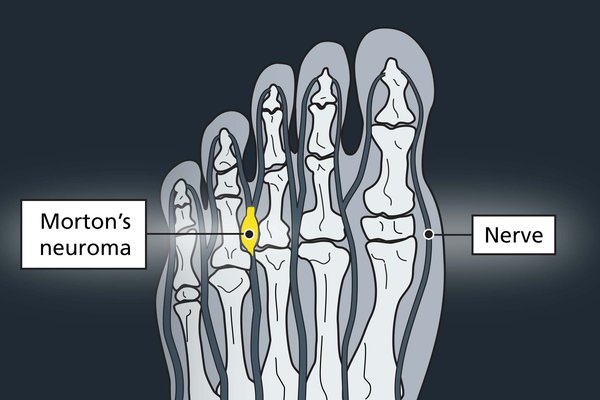

The main symptoms of Morton's neuroma include:
Some people may also have tingling or numbness in their foot.
The symptoms may be worse when you move your foot or wear tight or high-heeled shoes. It often gets worse over time.
There are things you can try yourself to ease the pain if you have Morton's neuroma. A GP would usually suggest trying these things first.
rest and raise your foot when you can
take ibuprofen or paracetamol
wear wide, comfortable shoes with a low heel and soft sole
use soft insoles or pads you put in your shoes
try to lose weight if you're overweight
avoid or reduce impact activities such as running and jumping
do not wear tight, pointy shoes, high heels, or shoes with thin soles
If you see a GP because you have symptoms of Morton's neuroma, they can:
Treatments from a foot specialist, such as a podiatrist or foot and ankle surgeon, may include:
Referral to a podiatrist on the NHS may not be available to everyone and waiting times can be long.
You can pay to see a podiatrist privately.
If you think you have Morton's neuroma, you might be able to refer yourself directly to services for help with your condition without seeing a GP.
To find out if there are any services in your area:
Morton's neuroma is caused by an irritated or damaged nerve between the toe bones.
It's often linked to:
